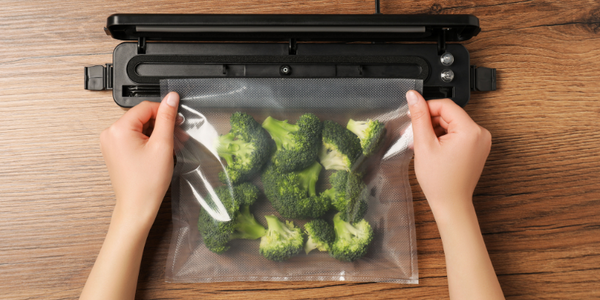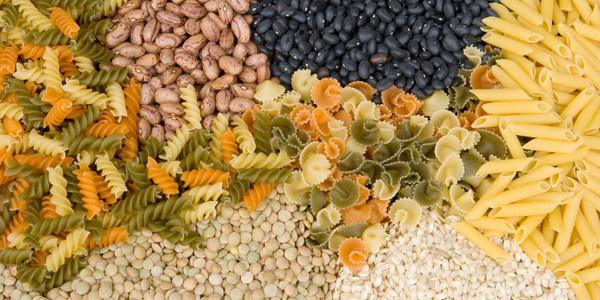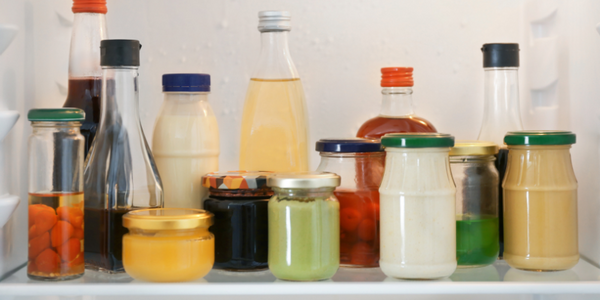Posted on March 11 2020

Have you ever been stuck at home for a time, due to bad weather or some other hazard? If so, you'll know how it feels to run out of food and other essentials, with no means of getting any more. Occasionally, disaster strikes in one part of the world or another, causing people to be stranded in their homes, so it's wise to keep a stock of basic provisions just in case of such an eventuality. But what goods should you store? Here's a handy list of recommended items.
Medicines
If you're on any medication, make sure to maintain a regular supply, with enough for the next week or more. Remember to take into account the medical needs of all other family members living with you, and your pets' needs, too. Supplies of first aid products, such as pain relief tablets and Band-Aids, should also be maintained.
Foods with long shelf lives
Unopened cans, jars and bottles of food will stay fresh for a long time, even without refrigeration, so it's worth stocking plenty of these. Pick high-protein options, such as baked beans and peanut butter. Should your electricity supply be cut and your frozen stores lost, you'll do fine with these nourishing products. Dry foods, such as cereals, grains and pastas, will also keep well in vacuum sealed bags. If you like oatmeal for breakfast, keep a few packs, and perhaps a packet of nutritious dried fruit to mix in. Finally, remember to provide for your pets.
Foods with a week or two of shelf life
Some food products will stay fresh for two weeks or so in your cupboards, so it's worth keeping supplies topped up. Root vegetables, such as carrots and onions, will last well in a cool place, as will certain fruits, like apples, oranges and melons. Sealed cakes, cookies and dry savory snacks will last even longer, and can bring comfort and cheer in emergencies. Then there are the products that stay fresh for a while in the fridge, including high-protein foods like cheese, eggs and cooked meats. They could keep you going for a few days or many for months and years when vacuum sealed.
Foods for freezing
Should you ever be isolated at home, chances are your electricity supply will remain unaffected, so make the most of your freezer as well as your shelves for contingency storing. Buy some extra meat, fish or other perishable, main-course foods, for long-term storage. Blanched vegetables and fruits will also freeze well, ensuring you a wholesome, varied diet, come what may. Why not save a few spirit-lifting desserts, too?
Beverages
If you're ever stuck at home, you may be happy to have some reviving tea or coffee, and maybe something a little stronger, too. The kids will be glad to have their favorite drinks on hand, and maybe some comforting hot chocolate for bedtimes. Water is always good to have on hand. Some types of beverages last longer than others, and fresh drinks, such as milk, are unsuitable for long term storage except in the freezer, so check all drinks before adding to the pile.
Hygiene and domestic products
You wouldn't want to run out of toilet paper when cooped up at home, so keep a plentiful supply of this in your cupboards, along with other bathroom essentials, like soap and toothpaste. You could also add to your household cleaning provisions, so you can keep your home fresh and sparkling, whatever the situation outside. Don't forget about the laundry soap too.
Alternative lighting
Wild weather can sometimes cause power outages, so you'd be well advised to keep several flashlights handy, complete with full batteries, just in case. Candles would also be welcome on a dark night, together with a lighter or matches. An oil lamp could prove a wise investment, being comparatively safe and powerful. Depending how far you wish to take your contingency measures, you might consider purchasing an oil heater or camping gas cooker, or other self-powered appliances. If you have an open hearth fire, build up a reserve of logs and coal for that rainy day.
With these practical pointers, you can start stocking up right now. Once you've arranged your collection in its designated corner, you can sit back and relax, worry-free. The likelihood is you'll never need to touch those spare provisions, but having them there will give you perfect peace of mind.
Related Posts

Eat Fresh Garden Veggies All Winter Long

Stock Your Pantry with Long Shelf Life Foods



0 comments